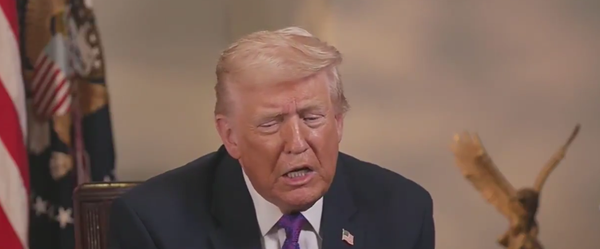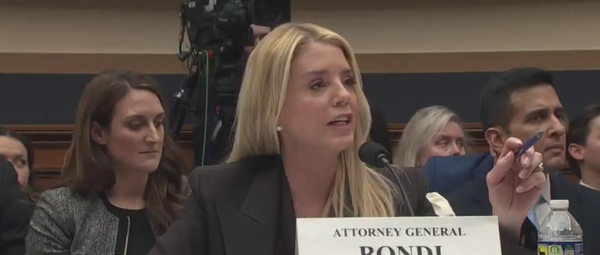Parties Aren't Static
Julian Castro is out, but his ideas will live on in the Democratic nominee.

When I heard the news this morning, I was surprised by my sadness. I knew Julian Castro was a long shot for the presidency. He’s never won statewide office. He’s never polled more than 1 or 2 percent in early states. Yet Castro seems to me to represent America’s better angels—values and ideals currently under attack or in retreat. That he suspended his campaign feels like those values and ideals are suspended as well.
They aren’t, of course. They are always at work. That these values and ideals are not visible in the administration—that they are suppressed by Donald Trump’s policies of sadism—doesn’t mean they’re gone for good. Castro’s ideas especially with respect to immigrants, immigration law and the border are not going away. Whoever wins the nomination is going to capitalize on Castro’s spirit. The nominee is going to make room for Castro’s supporters in the national Democratic coalition. More importantly, Castro’s supporters are going to fight for a space in it. As Hall of Famer and former Sunday Night Baseball color commentator Joe Morgan used to say, that’s the way it is.
When it comes right down to it, parties matter most.
I suspect many Democrats forget this. I suspect many Democratic activists in particular believe if their candidates loses, their ideas lose, too. If their candidates lose, they themselves lose, as if their individual identities are balled up in the success or failure of individual candidates, as if Castro’s struggles are their struggles, as if when the press ignores Castro, the press ignores them, too. While there is utility in going all-in for candidates—this is a competition after all—let’s keep some perspective. Democratic Party politics isn’t static. It isn’t homogeneous. If it were, we’d be defending “three-strikes laws,” proposing more “welfare reform” and calling pot a “gateway drug.”
OK, yes, Joe Biden said marijuana is a gateway drug. His critics glommed onto that bumbling statement as evidence of the Democratic Party being hopelessly stuck in the past, and why candidates like Castro—and Kamala Harris and Cory Booker—can’t gain traction. The party is still in thrall to Wall Street interests, critics say. The party is still too bigoted to recognize a generational, multi-racial and rising electorate.
But the same can be said of Biden’s critics. They too are stuck in the past. Economic arguments advanced in favor of Bernie Sanders are the same economic arguments that leftists lost in the 1990s. Critics who blamed Hillary Clinton for her husband’s record were too sexist to recognize her own record of liberal accomplishment. Critics who blame racism for dooming Castro’s and Harris’s campaigns are shockingly colorblind. Black voters are behind Joe Biden. As long as they are, he’ll likely be the nominee.
Put another way, the president is a domestic fascist. Trump is advancing white supremacy just by occupying the Oval Office. He literally puts Americans of color at risk with his demagoguery. The El Paso massacre happened after the president, for a week, attacked cities and all the diversity they imply. Biden would not be in the lead if not for Trump. Black voters wouldn’t support Biden if not for Trump. Yes, racism is preventing Castro and the others from gaining traction, but let’s not be colorblind. They are not gaining traction because many black voters don’t want them to.
It’s fair to say Joe Biden is in the lead because everyone learned the wrong lesson from 2016: that Trump won due to working-class “economic anxiety” and that only a working-class warrior like the former vice president can win them back. But it’s unfair to blame Biden or the Democratic National Committee for that mistake. It’s also unfair to say Biden’s nomination would be a step backward for the party. He said pot was a gateway drug. Then he walked it back after public outrage. That he walked it back suggests a capacity—and a desire—to represent the heart of the Democratic Party. That’s what you want to see in a nominee. That’s what matters most of all.
When it comes down to it, parties matter most, not candidates. Candidates are, or should be, vehicles for expressing and advancing policy preferences of the majority of the candidate's party. Nominees should demonstrate a capacity—and a desire—to hear what the majority wants before doing his or her best to incorporate demands into a winning message. As president, they should do the same while bringing around as much of the rest of the electorate as they can. Biden comes with baggage. His views are not the wokest by any stretch. But neither his lead nor his nomination (if he gets is) is at the expense of Julian Castro and the others. Parties aren’t static. They’re dynamic.
As Joe Morgan said, that’s the way it is.
—John Stoehr




